The Complete Guide To Your Emotions: Part 2
Sometimes, emotions can leave us feeling helpless, vulnerable, and as though we do not have control over what we do or think. I can guarantee you that nobody likes feeling this way. But is it possible to learn how to control your emotions?
Each and every person has different emotional responses. In part one of this series I identified the 3-step process that occurs during an emotional experience.
- A trigger occurs.
- You experience the emotion.
- A response occurs, which can be behavioral and/or internal.
<< Click here to read part one to learn the foundation of what your emotions are really telling you. >>
Why Is Emotion Regulation Important?
“Emotion regulation is a term generally used to describe a person’s ability to effectively manage and respond to an emotional experience.”
http://selfinjury.bctr.cornell.edu/perch/resources/what-is-emotion-regulationsinfo-brief.pdf

Your Emotional Responses Affect Your Relationships
One reason why it is so important to regulate emotional responses is because it influences how we interact with people socially. Anger and irritation can quickly make a simple conversation turn into an argument. Additionally, a lack of communication due to keeping emotions inside can result in the other person feeling stonewalled.
On the other hand, compassion and consideration can result in a healthy, productive conversation.
I am sure you have experienced both, but sometimes it can be difficult to stop your emotions from influencing how you act towards the people around you.
Your Emotional Responses Affect You
Maybe this is obvious, but the way you respond to the emotions that you experience has a direct effect on how you think and act as a result. If you react by cursing at somebody out of frustration and anger, you may feel guilt and remorse as a result.
The way that you interpret or suppress your emotions can also influence the decisions you make. Suppression occurs when you try to stop “the outward signs of inner feelings.” When you suppress your emotions you are not decreasing the emotional experience and you are actually impairing your memory.
Memory is a vital component to making effective decisions, and learning from past experiences. Therefore, emotional suppression is a big problem when it comes to trying to control your emotions.

How To Control Your Emotional Responses
I often hesitate when using the phrase “control your emotions.” Why is that? Because we are not necessarily controlling our emotions- we are making changes to how we think about and perceive our emotions, which then influences how we respond to them.
To reiterate, we are not directly manipulating or controlling our emotions, but we are directly controlling our response to our emotions.
Through my experience and research, I have identified some of the most effective ways to stop letting your emotions control you.
- Reacting vs. responding to your emotions
- Awareness vs. avoidance of triggers and of emotions themselves
- Emotional release and processing
- Changing your perception and the way you think to influence your emotions
Free Masterclass
Reacting vs. Responding To Your Emotions
There are two different ways you can respond to an emotional trigger.
You can react quickly and often purely from the place of the emotion, without putting any thought into the consequences of your actions.
Or, you can respond thoughtfully, calmly, and by taking into consideration the long-term effects on you and those around you.
We all want to be able to respond thoughtfully and not out of pure anxiety, frustration, anger, etc… But how do you get there?
You are going to continue reacting if you have no awareness of what your triggers are and how you are feeling. When you react in this way, it is referred to as being on “auto-pilot.”

Essentially, you are living your life acting on impulse- with a lack of awareness and just pandering to instant gratification and mindless choices. The problem that occurs when you live your life on autopilot is that you are not only mindlessly going through the motions during difficult situations, but you are also missing the gratifying moments of your life.
You are rarely fully present and as a result you cannot make the best long-term decisions for how to act. Those decisions are being made for you by our “instinctive desire to gain pleasure and avoid pain.”
So how do you avoid acting on impulse? By starting to learn ways to increase your awareness and attention.
Start by paying attention to any one of these things:
- Your emotional triggers
- Your thoughts
- The physical sensations you experience from emotions
Keep reading for tips on how to control your emotional responses and start responding instead of reacting.
How To Increase Your Emotional Awareness
All you have to do is start paying attention. Start paying attention to your difficult emotions just as much as the pleasant ones.
As stated earlier, it is our tendency to avoid pain and discomfort and turn towards positive experiences and pleasure. Therefore, it is only natural for us to want to avoid difficult emotions.
But, the more you avoid difficult emotions, the more power they will have over you and your decisions. It is similar to when you have a fear and you avoid it- you are giving that fear more power over your life because often our fears grow much larger in our heads.
Example: Maybe you have a fear of public speaking. You get nervous and have self-critical thoughts about how you are not a good public speaker. The more you avoid public speaking, the worse the fear will get because it will become even more foreign and scary in your mind. In addition, you won’t have any practice or confrontation with it and therefore you won’t have any opportunities to improve.
On the other hand, if you face your fear head on, you will feel more self-confidence for having faced your fear. Additionally, it may seem hard at first, but the more you practice and expose yourself to it, the easier it will get.
Put It Into Action: The first step to emotional awareness is as simple as labeling your emotions. So, next time you experience any emotion, instead of completely avoiding things and acting on autopilot- tell yourself, “I am feeling frustrated.” Or, “I am feeling pleased.” Or whatever you may be feeling. You may be surprised at how something so simple can help you to acknowledge your emotion, and then move forward.

Notice Emotional Triggers
Another aspect that is important to notice is the internal and external events that trigger your emotions. You know yourself better than anybody else.
Are you more likely to take it out on your children, significant other, or parent when you have had a bad day and are already stressed out? Notice that you may be reacting out of the mood you are already in- and that everything else that happens seems way more annoying as a result.
Do you get triggered when somebody cuts you off when driving? Or maybe it is when your neighbors are blasting loud music and disturbing the peace? Each person has different triggers; so pay attention to yours so that you can be more mindful when responding.
Put It Into Action: Keep a journal or take notes on your phone during the next 7 days of the things that trigger you emotionally. Pay attention to both positive and negative triggers. The act of documenting this can not only help you to identify triggers, but also to increase your awareness of your reactions to certain thoughts and events.

How To Process And Release Your Emotions
Okay, so you have identified your emotions and triggers, but what if an emotion continues to stay stuck and hangs around for a while?
When naming an emotion is not enough, it can be helpful to utilize different methods to really process that emotional experience. This can help to serve as another form of acknowledging the emotion and circumstances so that you can move forward and not stay stuck.
Methods Of Processing Your Emotions
- Journaling: Write down how you are feeling, what triggers may be contributing to this emotion (internal or external), what it feels like physically, and what action you can take- if any.
- Talking It Out: Reach out to a close friend, family member, or therapist and talk through how you are feeling and why. It is important to choose a person who will be supportive and not put you down for feeling a certain way.
- Get Creative: Creative art forms are often an expression of an emotional experience. Maybe you have experienced this from listening to your favorite music and getting emotional. You don’t have to be a professional artist or musician to express your emotions creatively. Choose the form of your preference: such as playing an instrument, singing, dancing, coloring, painting, graphic design, the options are endless. Focus on how you feel when getting things out.
- Meditation: Meditation is not about clearing your mind, but it is often about focusing on your present-moment experience. If you are new to meditation, follow a guided meditation for difficult emotions. If you already have a meditation practice, pay attention to difficult emotions and sensations as they come up. Turning towards these sensations can help you notice them and they will often dissolve- similar to facing your fears.
Put It Into Action: Next time you experience a difficult emotion this week, try one of these methods to help process how you are feeling.
How To Pay Attention To And Change Internal Emotional Triggers: Your Thoughts
Many of our emotional triggers occur when we overthink and ruminate about things. The way that you think about things is a huge factor in how you will respond emotionally.
“Your thoughts influence your perception- which will determine how you feel and act as a result.”
@tatianaglpc
Identifying and changing your thoughts is an ongoing practice of altering the patterns your brain has been repeating for years. The good news is that it is completely possible!
We are often our own worst critics, so we will repeat negative thoughts to ourselves. These thoughts can include predictions for the future (“Things are not going to go well”) or ruminating over the past (“I can’t believe I did that, I’m so stupid.”)
These thoughts are not facts and are only causing you to suffer over and over again.
I can do a whole other post or series about this topic, so please let me know in the comments below or by contacting me if you are interested in learning more about your thoughts and how to change them.
Put It Into Action: Pay attention to all of the times throughout the day that you are critical or judgmental to yourself, or that you are replaying moments from the past negatively or negatively predicting moments in the future. Be kind to yourself- we all do it. Consciously practice changing those thoughts to the facts of the situation.
Examples:
- The past cannot be changed; I did my best in that moment.
- Nobody can predict the future; I can only act in the present moment.
Hopefully the above information and tips are a helpful starting ground so that you can master your emotional responses and have more control over how you cope with emotions.
Change will not happen in a day, it often requires practice and persistence, so be kind to yourself!
Click here for part three to learn more about how to stop letting other people’s emotions affect you.
The Complete Guide To Your Emotions:
Part 1: What Are Your Emotions Really Telling You?
Part 2: How To Stop Letting Your Emotions Control You
Part 3: How To Stop Letting Other People’s Emotions Affect You
Free Masterclass
Sources:
- https://www.forbes.com/sites/margiewarrell/2017/06/15/living-on-autopilot-why-your-default-mode-is-derailing-your-decisions-and-how-to-stop-it/#b52d89ef0e45
- https://www.cambridge.org/core/journals/psychophysiology/article/emotion-regulation-affective-cognitive-and-social-consequences/552536BD5988D0D2079A7E0CC82E1ED8
- https://psycnet.apa.org/record/2003-05897-016
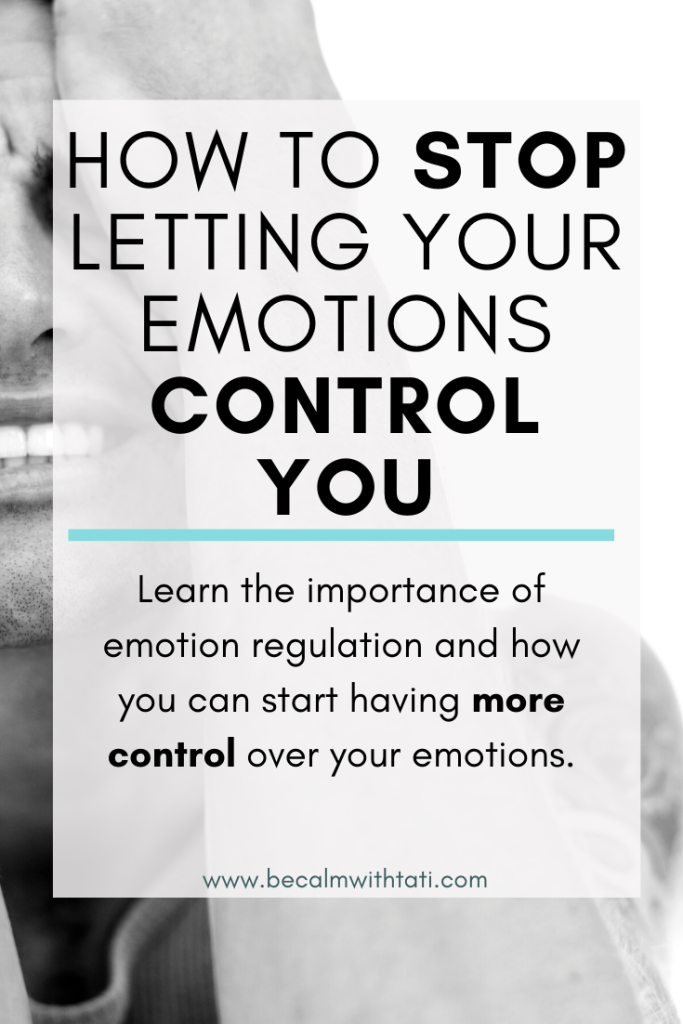
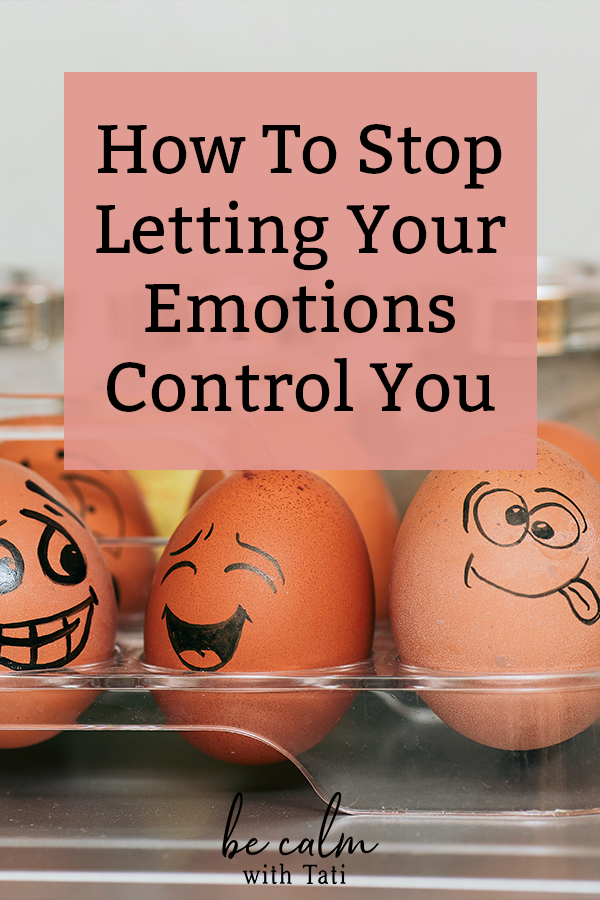
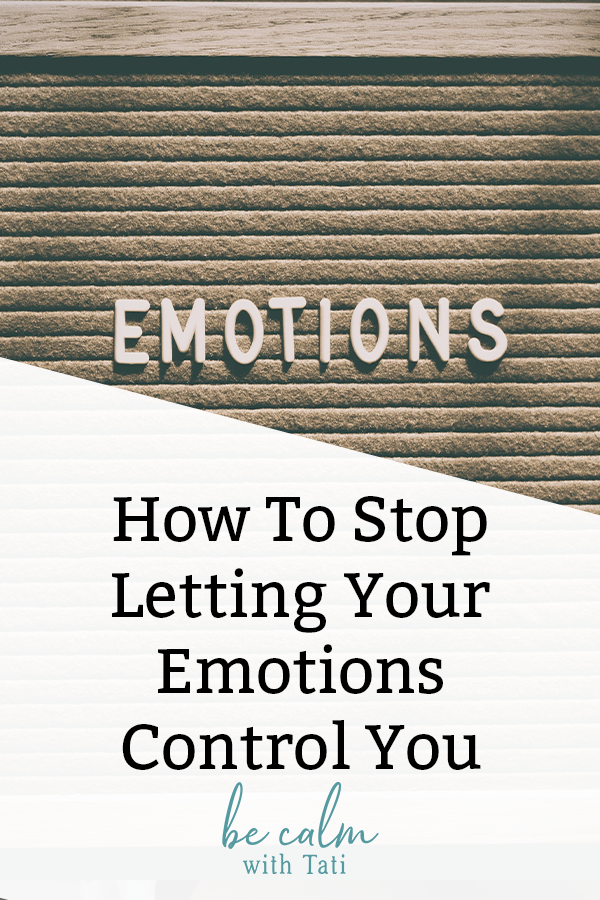




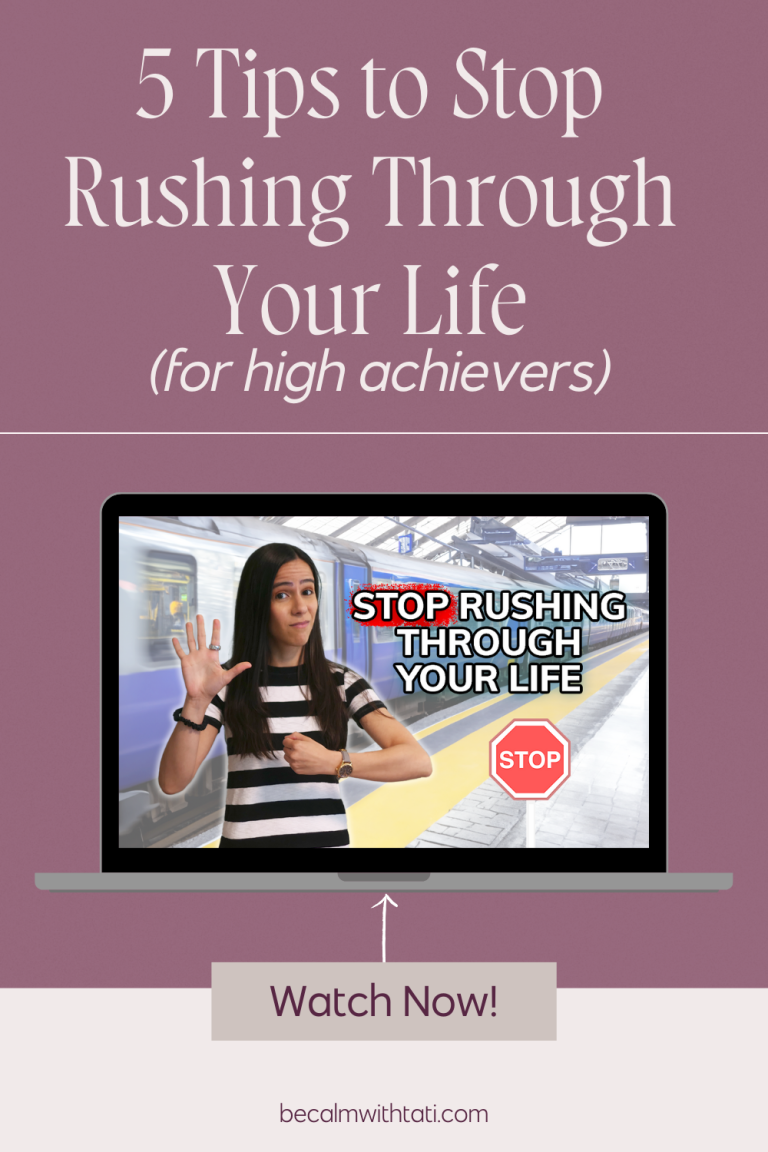
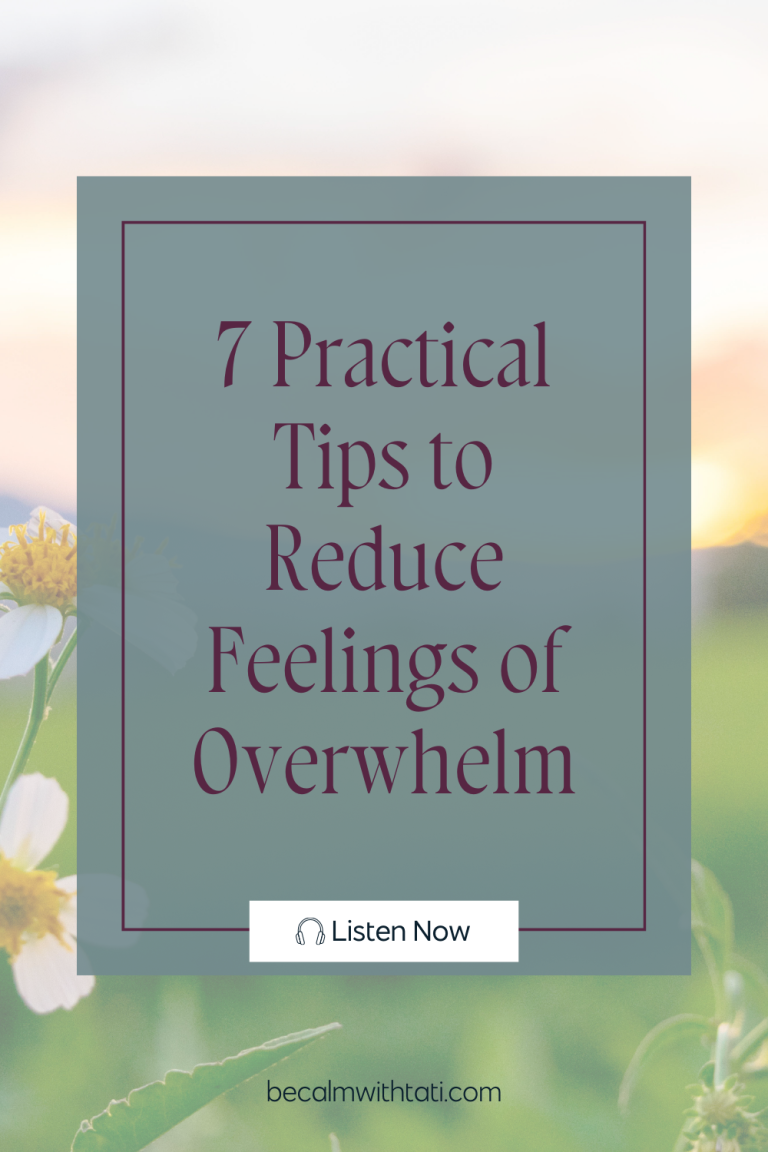

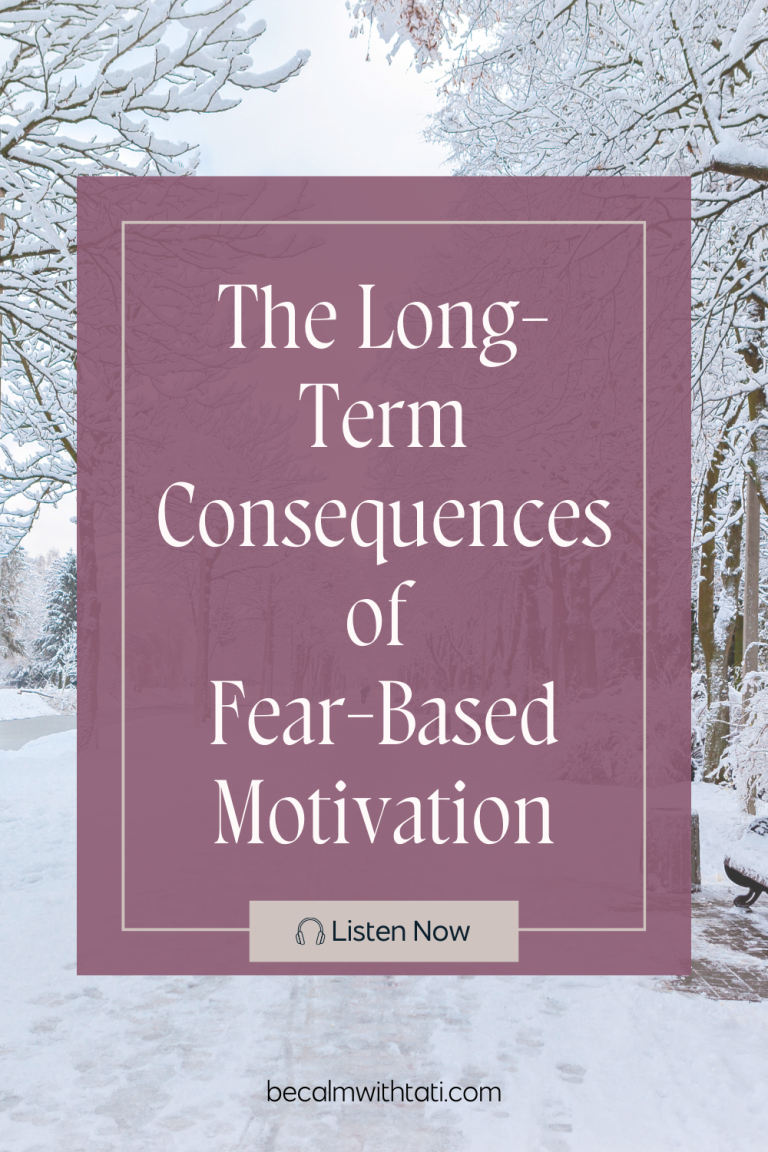






4 Comments
This post is great , thank you! I would love a post about thoughts and facts. Also one on how to set boundaries.
I also have trouble with this concept that I’m not responsible for how others emotions . I struggle with this idea because I could have acted out in anger and said something hurtful to the person or vice versa. What does that concept really mean? Are we responsible for other’s emotions especially if we are being deliberately hurtful?
Thank you, Margaret! I have a post on challenging anxious thoughts here: http://becalmdev.favjfk66cn-gjy3m1x8v38q.p.temp-site.link/how-to-cope-with-anxious-negative-thoughts/
And a podcast episode on how to set healthy boundaries with family here: http://becalmdev.favjfk66cn-gjy3m1x8v38q.p.temp-site.link/set-healthy-boundaries-with-family/
As well as a post on how to set boundaries with overworking here: http://becalmdev.favjfk66cn-gjy3m1x8v38q.p.temp-site.link/how-to-stop-overworking/
Great question, the concept that we aren’t responsible for other’s emotions doesn’t absolve us of responsibility for our own actions and we are responsible for the consequences if we are being deliberately (or even un-deliberately) hurtful. The concept means to bring the focus back to the fact that we cannot control another person’s emotional responses, which can help take the burden off of trying to “fix” how another person is feeling or taking on another person’s emotions. This is particularly helpful for those who struggle with people-pleasing or who are sensitive to the emotions of others.
I absolutely love this whole article and I would love to know more about how I can manage my emotions better. and how I choose to respond to those emotions.
I’m glad you love the article, Maya-Jean! Mindfulness is an excellent place to start when it comes to responding to your emotions. You might find this blog post I wrote helpful: https://www.becalmwithtati.com/mindfulness-and-anxiety/